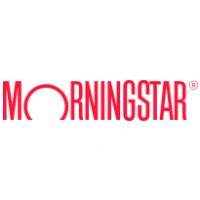 You’ve decided that low-cost index funds are the way to go. Which index fund company do you pick? Morningstar has a new research paper titled Partnering With Passive Fund Sponsors That Have Your Back:
You’ve decided that low-cost index funds are the way to go. Which index fund company do you pick? Morningstar has a new research paper titled Partnering With Passive Fund Sponsors That Have Your Back:
Successful investing hinges on putting yourself in the best position to maximize favorable outcomes. Beyond selecting a fund that tracks a well-constructed index and charges a low fee, choosing a fund sponsor that aligns its interests with its fundholders’ increases the odds of a positive investor outcome. Our research found that purveyors of passive funds that align their incentives with those of their fundholders have generated better category-relative risk-adjusted performance on average than funds from firms that seem to prioritize their own interests over investors’.
Here are the characteristics that they felt showed “alignment”:
- Charging low expense ratios
- Sharing a greater portion of generated securities-lending revenue
- Maintaining a disciplined approach to product development
- Investing in portfolio management infrastructure
After finishing the entire paper, my primary takeaway is that most of the big companies are doing a pretty good job. Vanguard, Fidelity, and Schwab are probably the most aligned. DFA is good in many areas but they do charge higher expense ratios for their factor-tilted passive funds (though past performance has also been higher). Blackrock has some good characteristics but also does a few questionable things like creating a cheap version of a successful ETF, which still charging as much as they can on the old ETF.
Index tracking quality. Here’s a chart of how well each firm tracked their underlying indexes over the past 5 years. Tracking errors are now very low across the board.

For the most part, competition is working and industry practices are converging. The paper notes that State Street has historically been the worst at lowering expense ratios over the last 10 years. The next thing I see? State Street announces their new suite of low-cost SPDR Portfolio ETFs.
TIAA is NOT a non-profit. The Morningstar paper states that TIAA is a nonprofit. However, according to this recent NY Times article, TIAA stopped being a non-profit in 1997 and has been accused of touting its “nonprofit heritage” while pushing higher-cost investment products:
Even though TIAA stopped being a nonprofit organization in 1997, many of its customers might think it remains one. The company’s website ends in a .org rather than a .com and TIAA repeatedly refers to its “nonprofit heritage.”
Most of TIAA is for-profit. Teachers Advisors, for example, is an investment advisory firm that receives compensation from each in-house mutual fund it manages. Nuveen, a mutual fund company purchased by TIAA in 2014, is also run on a for-profit basis. So is EverBank, a Florida banking institution TIAA acquired in June.
Bottom line. Morningstar did not provide final rankings, but my interpretation of Morningstar data is that these firms show the most investor-aligned practices: Vanguard, Fidelity, and Schwab. Based on my own observations, I would be most comfortable having my money held with these firms as well. DFA and Blackrock are not that far behind.
Which Index Fund Companies Are Most Aligned With Individual Investors? from My Money Blog.
© MyMoneyBlog.com, 2017.
Read More: Which Index Fund Companies Are Most Aligned With Individual Investors?







